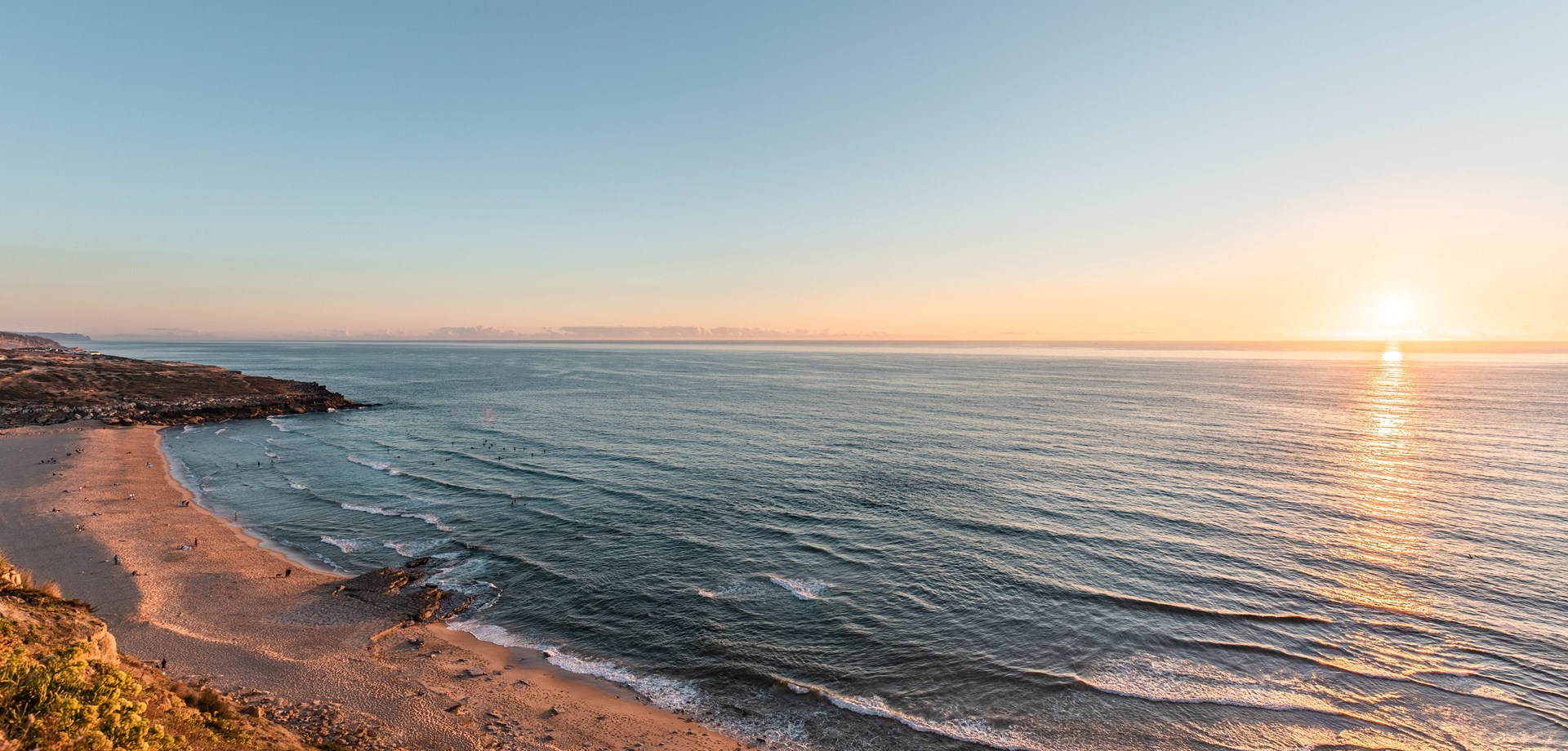Spending your retirement in Portugal: the complete guide
8 July 2023

Portugal is an attractive country for many Europeans, especially the French who wish to spend their retirement there. A friendly climate, welcoming beaches and sunshine, a warm population and advantageous tax conditions in many respects, this country of the European Union, located in the South West of Europe is today a boon for retirees.
However, before making such an important decision, it is necessary to know everything about retirement in Portugal, leaving no detail aside. During this article, you will get a lot of information that will allow you to have a global vision on retirement in Portugal. We introduce you to the cost of living, paperwork, the best places to settle, the disadvantages, the main advantages, etc. You will then be able to have more significant elements to feed your reflection, perhaps already mature, or which has just hatched.
The cost of living for a pensioner in Portugal
Apart from the cost of electricity, which is much higher in Portugal (between 30% and 40% more expensive), the cost of living in Portugal is much lower than that of France. This is especially visible on the power supply for which you can save up to 30%. Obviously, this does not apply to products imported from Asia, or other European countries, let alone luxury goods. You can even find a lot of vegetables at half their price compared to the France. This is the case with tomatoes, zucchini, etc. Meat and fish are also much cheaper in Portugal than in France. As for vegetables you can save up to 50%.

Spending your retirement in Lisbon, Portugal
Regarding housing you can save between 10 and 30% depending on the neighborhood and city. Note that in recent years land speculation has become a reality in Portugal, which requires an informed and thorough research before choosing your precise place to settle. Thus, the price per habitable square meter in the capital and in many cities is around 2500 and 3000 euros. In Lisbon, the price per square meter can be close to 8000 euros. In the Algarve you can find land at just 500 euros per square meter.
Steps for a peaceful retirement in Portugal
Although it is not necessary to apply for a visa to go to Portugal, it is nevertheless necessary to follow a certain administrative procedure, if the stay must be long-term. Thus, after three months of residence in Portugal you will have to apply for an authorization from the town hall for an extension of three additional months. To retire in Portugal, you will need a residence permit and a tax identification number. You will also need a certificate of residence issued by the town hall of your place of residence. These documents will allow you to live another five years in Portugal on a regular basis. At the end of these five years, you will be able to claim permanent resident status to definitively enjoy your retirement with peace of mind.
Who pays your pension ?
Apart from ASPA and ASI, you do not need to reside in France to receive your retirement pension without any worries. You will just have to inform your pension funds of your moving plans and fill out a certificate of life or a certificate of existence each year. This will let them know that you are still alive and therefore a beneficiary.
All about taxation
Portugal was always considered a tax haven by the French. Indeed, French socialism makes its tax regime one of the most restrictive in the world. Thus, if the French want to go to Portugal for its sun, its beaches and the cost of living, they also go there for its many tax advantages. However, it should be noted that in February 2020, the tax regime was adjusted in Portugal , which requires a little more attention before deciding to settle there permanently or even permanently.
Before this reform, French pensioners enjoyed a status of non-habitual residence which allowed them to enjoy a total tax exemption on their retirement pension as soon as they settled for a period of ten years. To benefit from it, you just had to live half the year in Portugal and not have lived there for the previous five years. After ten years, a progressive tax system had to take place. However, with the coming to power of the Socialists and the new tax regime, Portugal is likely to be a little less attractive in this respect. Indeed, it was proposed and voted a taxation of 10% for foreign pensioners. The reason for this decision can be seen on the financial stabilization of Portugal, which no longer needed to conduct such an attractive fiscal policy to attract foreign capital.
Can you benefit from a tax exemption?
The tax advantage – which consisted in the exemption – concerned only the self-employed and employees and not civil servants of the French State. Moreover, if the new law comes into force, this exemption for the first ten years will no longer exist for anyone. However, Portugal remains attractive from a fiscal point of view compared to countries such as France.
What are the advantages of retiring in Portugal ?
For French retirees, the first advantage is geographical proximity. In addition, there is the climate which is one of Portugal's biggest arguments for attracting French pensioners. Sunshine for 10 months out of 12, with temperatures in winter that rarely drop below 10 °. Portugal is arguably one of the best destinations for expats. The second advantage is the cost of living , which is a major argument. By leaving the France for Portugal, you can save up to 30% between current consumption, housing and leisure.
What are the disadvantages of retiring in Portugal ?
Portugal certainly offers many advantages but also some disadvantages, particularly in terms of health. The medical world is less efficient than in France, especially in public hospitals. Private clinics and hospitals offer a better service and can even be compared with the France but the prices are exorbitant. To reduce this inconvenience, you can take out health insurance to enjoy care in a private clinic. Considering the geographical proximity to the France, you can also make the trip to come to France treat yourself if you have the means and if you do not have certain chronic diseases that require appointments at regular intervals. In any case, the medical world of Portugal is a parameter to consider if you plan to spend your old age in this country. In addition, it should be noted that most of the Portuguese cultural offer is located in Lisbon, which justifies a higher cost of living, just like in Porto. Apart from these two cities, do not expect an extraordinary cultural richness.
Where to settle in Portugal ?
25% of Portuguese live in Lisbon and this is no coincidence. The living environment is ideal, the beaches are fabulous and the landscape varied. Capital status provides it with everything it needs in terms of infrastructure. The only problem is the cost of living, which is not very far from that of France. On the other hand, there is the Algarve which is probably the cheapest part of the country although it has good beaches and sunshine that lasts almost all year round. It is, so to speak, a real piece of paradise. The possible disadvantage, for this southern part, is that there is not much dynamism or tourist sites. The northern part of the country between Porto and its surroundings presents itself as a compromise between Lisbon and the Algarve. There is a very good living environment especially on the coast. The cost of living is more advantageous compared to Lisbon, it is touristically attractive, dynamic and landlocked.

At the end of 2020, Portugal welcomed 19,125 French people
Between quality of life and cost of living
Between a coastline of exceptional beauty, a welcoming and warm people, accessible personal services and acceptable security, Portugal has a very satisfactory quality of life. In addition, it is obvious that the majority of retirees choose a place of expatriation for its cost of living. Quality of life and cost of living are the two main arguments that can convince a retiree to leave his city of residence and move to a foreign country. Indeed, between quality of life and cost of living, we can not enjoy one without the other.
Health insurance
At a certain age, health becomes a major concern. It is to bridge the differences with a less efficient medical world than in France that severalhealth insurance formulas have been introduced in Portugal. Thus, depending on the level of service you want to enjoy, you can subscribe to a specific and tailor-made insurance. Therefore, it will be necessary to take the time to learn about different agencies and different formulas to find the ones that suit you best.
Real estate in Portugal
For a purchase or rental, real estate in Portugal is very dynamic. The price depends mainly on the area as described above but it is always possible to make good deals. The main thing is to surround yourself with a good lawyer and a reliable real estate agent who masters the mapping of real estate transactions.
by Retiring in Portugal: The Complete Guide | retraite-etranger.fr


